We used to know about dreams.
Sure, we didn’t always understand the synaptic shift from the prefrontal cortex to the limbic system, but we knew that dreams could bring insight and forewarning. The hippocampus and the mechanisms of long-term memory retention had yet to be explored, but we sure recognized signs and wonders.
In our quest for enlightenment, we’ve chosen to trivialize our prior knowledge about dreams by calling them superstition. Here’s why I find that funny: modern science has never contradicted our preceding understanding of dreams and their role in our lives. Nothing about brain chemistry suggests that dreams are mere “randomly firing synapses.” That’s the superstition.
Just to give it a go, I started keeping a dream journal a few months back. My participation has been sporadic, in part because I found the process unfulfilling. Dreams are not literal narratives, after all, nor are they easily decoded through universal symbolic stand-ins; “alligator” in dreamland doesn’t always mean “mother-in-law" in reality. So if dreams aren’t literal exposition or a symbolic matching game, why do we write our dream journals in this way?
The following is my attempt at adding to the long tradition of dream poetry. This one is based on a dream I had in the second week of October. While composing the poem, I was surprised at how much more true it felt when compared to a literal description.
I suppose it shouldn’t have surprised me too much. From “The Dream of the Rood” to “Kubla Khan”—and even today if you, too, choose to try—poetry remains a powerful vehicle for navigating the land of magic and marvels. The next time you experience a particularly profound dream, I encourage you to try expressing it through verse. I’d be surprised if you didn’t find it worthwhile.
Galilean
Golden glares: a glowering dream.
While straining I stood, staring at the rise
We had formed to find. The field was blanching,
Not yet the yellow of year-end harvest.
The wind wrought its wilds and weighed on us—
We braced while its breath breached our band.
I knew the name of the nearest man
Who had longest beheld that hilltop view.
I couldn’t recall it, unclear in my mind
But “Blackhill” brought back his blotted name
When once I woke. Away from him
And louder was Lamefoot—a lord, but his junior.
Attuning their telescopes, they turned and prepared them.
More adept at dials, the distant one rose
To hunt for a honing-place. Handsome Lamefoot
Fixed his focus, then followed his friend.
A third stood thoughtful, throwing a smile
While crossing in each crook his crafty arms.
Along the field he loped, laughing his mirth
As he made to meet me. “My memory’s wanting,”
I fumbled when failing to find his name
In my meek muttering. Motionless he waited.
I studied the spyglass lying still by my feet.
A brass barrel with bright chains
And wooden shafts, awaiting adjustment.
A gift once given to a green youth
To instill in a son the skill of seeing.
The third, with his thumb, thrust toward the hilltop
Where Blackhill had brought his bearing-glass,
Allowing Lamefoot to lower beside him.
“In the blaze of mid-day?” I blustered at the third.
“Glare provides glimpse of the glorious” he said.
Uneased but curious, I crept up the hill
To search and see. To summon myself.



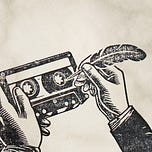

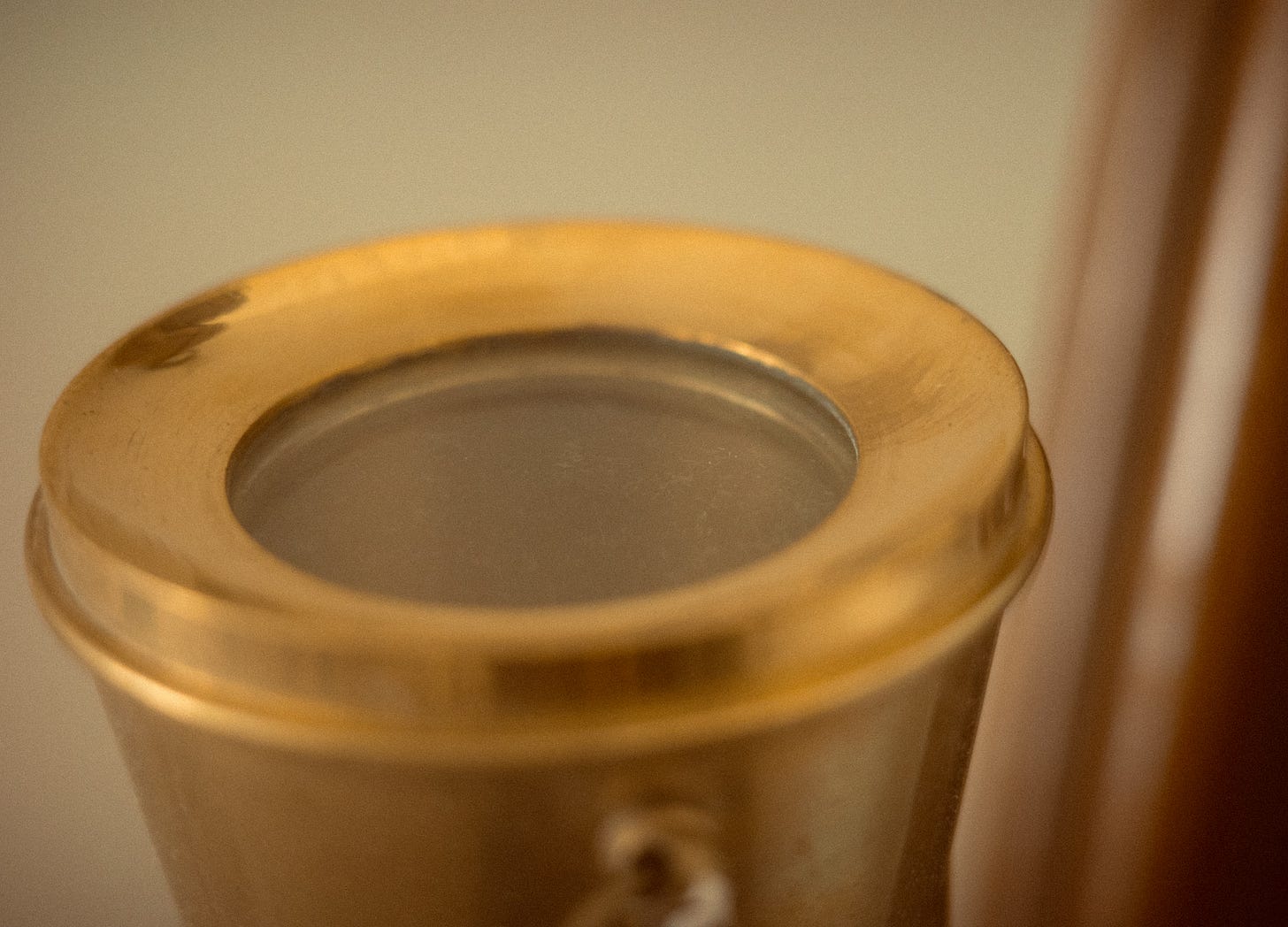


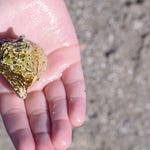

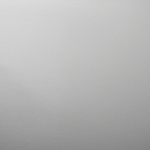
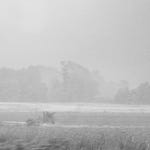
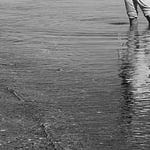

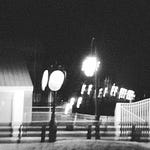
Share this post